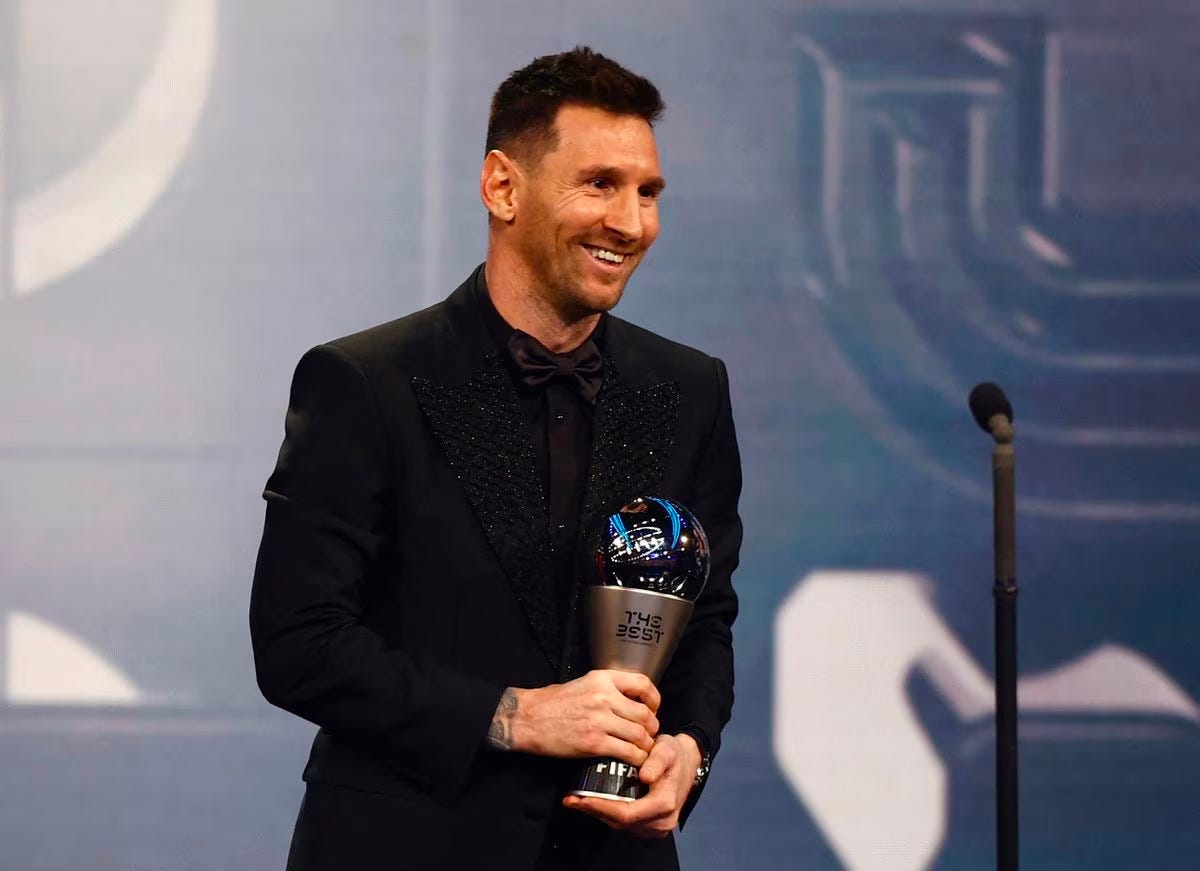Decoding the Controversy: Messi's FIFA Win and the Nuances of Football Excellence
The post underscores the importance of distinguishing individual efforts from team contributions and cautions against injecting bias into assessments, highlighting the need for a balanced perspective
A few days ago, Lionel Messi clinched the title of Best FIFA Men's Player for 2023, an accomplishment that stirred considerable controversy among football enthusiasts. Many fans expressed vehement dissatisfaction, contending that the award had been unfairly tailored for Messi, and pointed to Erling Haaland's treble victory with Manchester City as evidence of an alternative deserving candidate.
While the debates surrounding this outcome persist, I find it imperative to approach the situation with a balanced perspective. In recent years, I've come to appreciate the significance of avoiding bias—a challenging task when evaluating matters devoid of emotional influences. It's worth noting that if success were solely measured by trophies, Messi would invariably emerge victorious, given his record for the most trophies won by an individual player.
Crucially, it is essential to differentiate between a team's collective effort and an individual player's contributions, even though the player plays a significant role. Take, for instance, Haaland's achievements; without key players like Kevin De Bruyne and Rodri supporting him, winning trophies would be an almost insurmountable challenge.
This narrative serves as a microcosm, yet it imparts a valuable lesson about the importance of sidestepping bias. Injecting bias into any decision-making process can distort the true value behind it, potentially yielding unforeseen and undesired outcomes.



